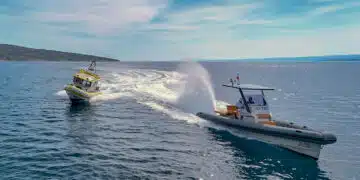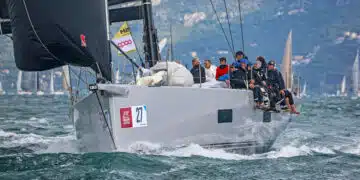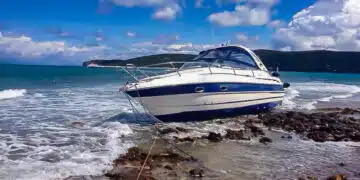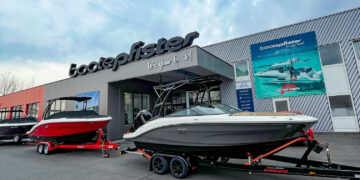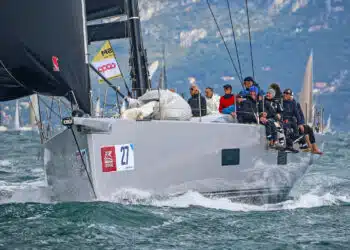What is the risk of going overboard while urinating? SeaHelp explains what micturition syncope is all about – and how “man” can counteract accidents and unintentional going overboard..
Éric Tabarly is well known among sailors. The Frenchman is considered one of the best ocean sailors of the 20th century. An officer and commander of the Legion of Honor and a recipient of the Order of Maritime Merit, he made a name for himself primarily through victories in single-handed regattas and through various record-breaking races. Tabarly’s first major success was winning the Observer Singlehanded Trans-Atlantic Race (OSTAR) from Plymouth to Newport (Rhode Island) in the United States with the Pen Duick II.
In addition to racing, Tabarly’s passion was the 1898 William Fife yacht Pen Duick, which he had inherited from his father and lovingly restored. In 1973, Tabarly founded the Pen Duick S.A.S. organization with Gérard Petipas, which promoted various areas of sailing. Since 1985, Pen Duick has organized, in particular, ocean races such as the Route du Rhum and the Transat AG2R; its subsidiary organization “Match Racing” organizes the Transat BPE.
Tabarly went overboard at night – the reason is suspected to be the phenomenon of micturition syncope
But the world-celebrated sailing hero Éric Tabarly also gained fame because of another sad circumstance. The multiple award-winning regatta sailor categorically refused to belay himself on board and wore neither life jackets nor lifebelts. This circumstance was to cost him his life when he went overboard and drowned during a night voyage in the Irish Sea on June 13, 1989.
The cause of death – or the reason for going overboard – was later suspected to be a phenomenon that is usually only talked about behind closed doors, and which doctors refer to as so-called micturition syncope; the terms pressor syncope or postpressor syncope are also often used in this context.
When urinating, a brief loss of consciousness may occur – if this occurs while standing, a fall may result
What is meant by this: during urination (micturition; Latin mingere “to urinate”), reversible unconsciousness (syncope; from the ancient Greek: “collision, expulsion”) can occur acutely under certain circumstances. This may well last a few seconds – up to a maximum of one minute.
The problem: micturition syncope occurs predominantly in younger men during or immediately after micturition while standing. Sufferers are often drowsy with an overfilled bladder, usually after drinking alcohol and immediately after getting up, typically at night. They then fall either abruptly or after brief dizziness, and significant injuries may occur.
This is explained by the decrease in vasoconstrictor tone; this causes a drop in blood pressure and eventually collapse. The Valsalva mechanism at the onset of micturition and the cessation of support of blood pressure by the full bladder also contribute.
In sailors, micturition syncope can cause going overboard
So far, so theoretical. However, while micturition syncope on land can only lead to fall injuries – more or less bad – it is feared as an occasional cause of death among sailors Two reasons in particular are cited for this: in heavy seas and cold weather, sailors with appropriate compact protective clothing (oil gear). The urge to urinate is often resisted as long as possible, because: it is mostly very cumbersome and takes time for “man” to peel out to urinate.
If the bladder is then abruptly emptied, the described micturition syncope can occur. If this happens at the edge of the boat, falling overboard is possible, because normally the person urinating holds on with only one hand (usually to the shroud or one of the stages), and he is usually on the leeward side of the yacht or boat, i.e. the side facing away from the wind.
If the sailor is later found in the water, open pants (and possibly the man’s exposed “best part”) may point to the cause of micturition syncope as the reason for going overboard – as with the sailing hero Eric Tabarly described above. In addition to postponing urination, alcohol consumption, for example on vacation sailing trips, can also lead to micturition syncope – with the consequences mentioned above.
It is recommended that (especially men) visit the on-board toilet or wear life jackets
Conclusion: it is proven that – statistically – more people go overboard during harbor maneuvers or while urinating than, for example, during strong winds or storms, and: when “peeing” it mainly affects men. To avoid going overboard when urinating, it is therefore advisable to use the on-board toilet (if not available, the “on-board potty”) – or at least to wear a life jacket – and not only during the actual micturition.
By the way: a micturition syncope can already announce itself beforehand by certain signs. In addition to minor dizzy spells and sudden sweating, these include blackening of the eyes, a pale skin color, and even minor clonic twitches are possible.
There is only one thing that helps here: to “resolve” the situation as soon as possible, i.e. to go to the on-board toilet. Especially in heavy swells or storms, the safest way to pee – especially for men – is to sit down.



